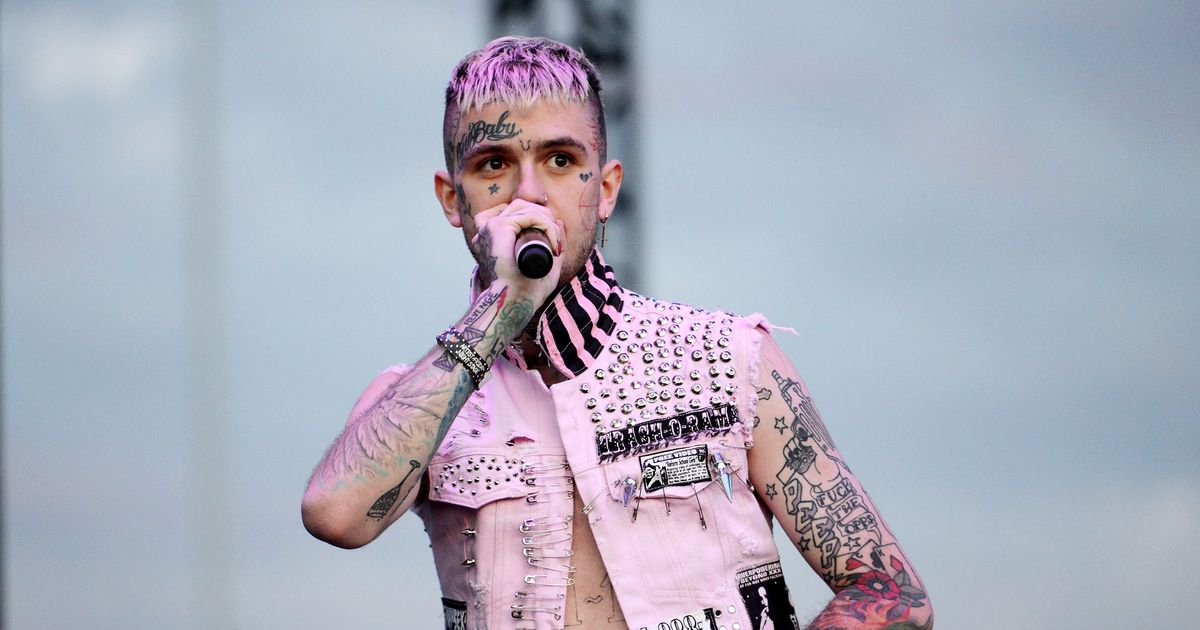
Peep, the product of a broken home who felt abandoned by his father, instead dropped out of high school to focus on music, weed, and an ever-growing collection of tattoos, including a few on his face that he says he got because what’s a job-stopper when you don’t plan to have a job? As his family and friends tell Everybody’s Everything directors Ramez Silyan and Sebastian Jones, his peers took summer lifeguard jobs and applied to fancy schools. Born Gustav Ahr in 1996, he never fit into the community of his native Long Island growing up. In fact, it may make it more so.įor all the hand-wringing over Lil Peep’s music and death, it’s easy to forget just how brief his life was-and how briefly he was in the public light before he died. But just because you know this song doesn’t make it any less heartbreaking. It’s at once a uniquely late-2010s story-the genre-bending, face-tatted singer gets famous on social media and SoundCloud for his songs about depression and drug abuse-and one we’ve heard countless times before, of enablers in an uncaring music industry who can’t see they’re helping destroy the person they’re propping up. Executive produced by Terrence Malick and scored by Fall Out Boy’s Patrick Stump, the documentary is an at-times gripping portrait of an artist on the cusp of something great who saw his flame snuffed out too soon. That problem is explored throughout Everybody’s Everything, released in select theaters this week and accompanied by a new album of Peep material due Friday. “At that moment, I was like, ‘We’ve got a problem.’” “I go upstairs to say hello to him, and he goes, ‘I told you I could do it,’” Binder says. What happens next shouldn’t surprise you if you’ve seen this story before: Peep snaps out of it and proceeds to kill the rest of his set, wowing the record execs in attendance and further solidifying himself as a rising star. In this moment, he’s less Next Big Thing than a 20-year-old who just needs help. The song ends, and the crowd tepidly applauds. There’s a trash can ready in case he needs to puke. It starts ugly: He mumbles through his opener, skipping whole bars at a time as one of his managers uses a fog machine as a distraction. “Peep looks at me and he goes, ‘I don’t know if I can do this.’” His team considers canceling the show or calling the fire department to shut down the venue. “We’re in the stairwell, and it’s just Peep and I,” says his entertainment lawyer Josh Binder, recounting the incident in the doc. But on this night, he’s just a kid who can’t go on stage in his adopted home of Los Angeles.

He’s also just six months away from his death by accidental overdose. It’s May 2017 he’s just a few months removed from several big-time feature stories that will elevate him from underground iconoclast to buzzy mainstream outsider.


In this version of that well-worn tale, Peep is at the end of a tour, and he’s ingested an ungodly amount of whatever he can get his hands on. Devotees will appreciate a different look at their fallen idol, while those who aren’t familiar with his music might find the film a bit long at nearly two hours but will see what the appeal was to those who loved him.There’s a moment just over halfway through Everybody’s Everything, the new documentary about the late Lil Peep, when the nascent pop-punk/rap star takes on a trope we’ve seen many times before: the musician too fucked up to perform. Jones and Silyan share a picture of an artist who pushed boundaries in both the industry and music itself, resonating with his young, rabid fans, as he struggled with depression and drugs. Measured narration from his grandfather contrasts with the wild, emotive energy of his music, serving as a ballast for those who might feel tossed about by Lil Peep’s innovative, genre-mashing style. Artful edits incorporate more recent archival footage of him onstage and off as well as interviews with his family, friends and collaborators. With Lil Peep’s mother, Liza Womack, also credited as an executive producer, “Everybody’s Everything” offers intimate access to the open-hearted musician, particularly through home videos of him as the child born Gustav Elijah Åhr. Directed by Sebastian Jones (Malick’s editor on “A Hidden Life”) and Ramez Silyan, the documentary is a lyrical exploration of the existential, reflecting an artist’s music and his personal struggles before his death at age 21.
Lil peep documentary movie#
But a closer look at both “Everybody’s Everything” and its subject, Lil Peep, reveals a deeper connection between the filmmaker’s body of work and the movie his name is attached to. Terrence Malick’s executive producer credit on a documentary about a face-tattoo-bearing indie emo rapper might feel incongruous.


 0 kommentar(er)
0 kommentar(er)
